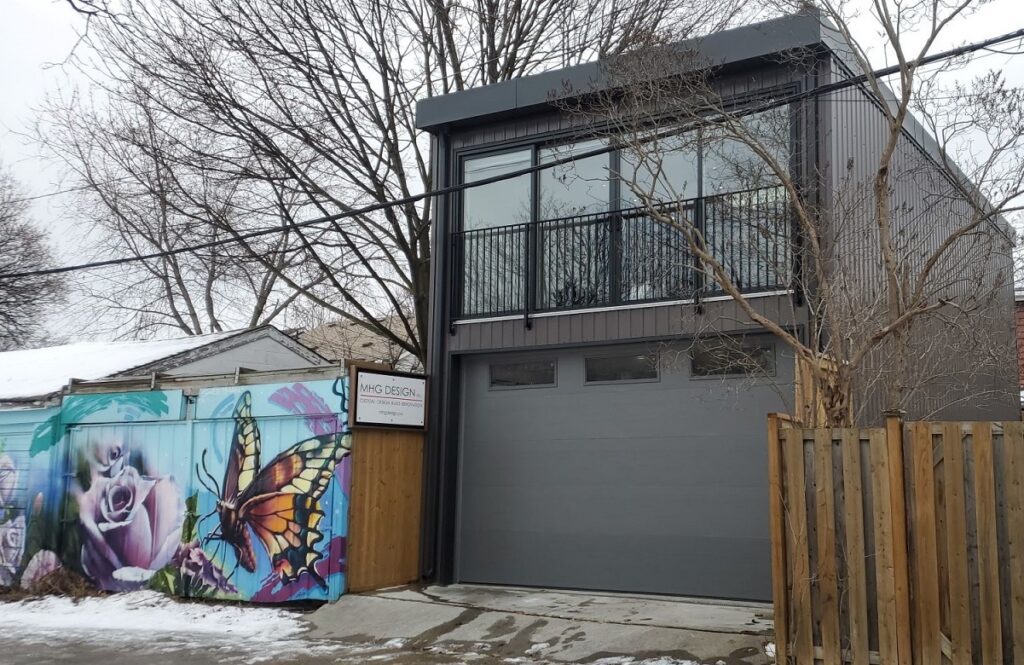Contrary to popular belief, a home inspection should not come with a “pass” or “fail” grade.
Think of the inspection as an investment in your new home…

I feel as though the bounty of real estate television shows out there today, or “real estate porn” as some people refer to it, has led viewers to believe that every home inspection results in a “pass” or “fail” grade.
Remember that these television shows are highly formulated, and only show what is truly interesting and unique, ie. a house that has a catastrophic deficiency, that no buyer should ever go near.
But in reality, and I find the word “reality” to be somewhat ironic in this case, since these television shows aren’t very realistic, a home inspection rarely reveals some potential financial albatross, and although it’s great to hunt for red flags and deal-breakers, a home inspection has other purposes as well.
It is my opinion that while a home inspection can identify a red-flag, it’s also somewhat of an investment in the home for the buyer. It’s an education in the home, if you will.
But the real estate television shows glorify the worst possible scenarios because they make the most interesting stories!
A friend of mine purchased a Rosedale home about two years ago, and had a home inspection conducted on the property. The inspector, who was referred to him by the listing agent (who he later fired and took to ethics…) gave the house a very clean report, and made a mere mention to a “potential” issue with the foundation.
My friend sought an independent second-opinion, and hired a home inspector who found a major issue; one that he said could cost the home-buyer hundreds of thousands of dollars. It seems that this house was actually sinking into the ground, as the foundation itself was badly damaged, and there would be no way to prevent further sinking and shifting. The home inspector said, “It’s not my job to tell a person whether or not to purchase a house, but I would never purchase this house in a thousand years, and I hope that nobody I know does either.”
My friend walked away from the deal, and the house has sold conditionally three times since then, falling through on inspection every time. It seems that every inspector worth his salt (ie. those not in cahoots with the listing agent) can identify this issue.
This would make a great episode on TV wouldn’t it?
Having said that, would you watch an 30-minute episode of a home inspector walking a young couple through the house and showing them which light switches don’t work? Of course not, that’s boring! But that’s reality, folks! A home inspection servers many purposes in addition to searching for red-flags, and I always tell my clients to consider the home inspection an “investment” in their new property.
A home inspection usually consists of two parts 1) the inspection itself, 2) the walk-through. This walk-through usually provides the buyer with an education on the property that he or she just purchased, and in my mind, it’s like taking a crash course on home ownership. Let’s be honest here: many first time-house owners are coming from condos where there’s no need to understand the inner workings of mechanical systems, and thus the house owner often has no clue what’s what!
Now I know some of my readers are sitting there, pounding their chests, preparing to hammer up drywall in their basement this weekend with their buddies, but maybe you guys represent 2-3% of the buyer pool. It’s great that you know a lot about houses and that you’re do-it-yourselfers, but most new home owners can’t make the same claims.
Consider that no house is perfect, and even a house built by a luxury developer is going to have a couple flaws and/or imperfections. I believe that the purpose of a home inspection is not just to search for catastrophic red flags that could “fail” the home inspection, but also to educate the buyer about ways to care for the house, and ways to improve it.
For example, I was doing a home inspection last weekend where the home inspector found there was only 4-inches of insulation in the attic. “You really want to have a solid 14-15 inches up there,” he said. “Don’t forget, hot air rises, and it’s easier to escape through 4-inches of insulation than 15! You can add some insulation for a few bucks, and potentially save hundreds or thousands of dollars on your heating bill over the next few years.”
That’s great advice, and it’s something that only a home inspector with a ladder and a flashlight would find. Would the home-buyer necessarily know to go up there and inspect him or herself?
A few weeks back, I took a young couple out of their King Street condo and put them in a house in Leslieville. Their home inspector asked, “Do you know where the main water shut-off valve is?” They both shook their heads. How could they be expected to know that? They probably hadn’t considered things like circuit breakers and supply lines the last time they lived in a house, which was probably when they were kids! They admitted as much to the home inspector, and benefitted from his hour-long tour of the house whereby he explained all the mechanical systems, and identified about a half-dozen “minor issues” that could be fixed at a nominal cost.
And that’s what most home inspections discover – items that can be fixed at a nominal cost. These aren’t true “deal breakers,” but rather things that can be dealt with easily, and on the cheap.
At my last home inspection, the inspector asked the buyer to turn on the bathroom ceiling fan. “Now do you see the exhaust hanging there from the ceiling – where the dryer will hook up once you install one? Put your hand underneath that. Do you feel the air coming out?”
It seemed that the person who installed the ductwork had accidentally vented the bathroom fan back through the same duct that was supposed to be venting the dryer. This could potentially cause mold if moisture from the fan were routed back through the ducts, and it’s something that only a solid home inspector would be expected to identify. Again – this is a $200-$300 problem; nothing that is going to hold up the sale of a $600,000 asset, but something that makes the $400 home inspection worthwhile!
Those of you who have lived, taken care of, and fixed-up several houses might think that much of what is covered in a home inspection is common knowledge, but I can tell you from experience that it’s not.
When I talk about a home inspection as an “investment,” part of that comes from preventative maintenance that the buyer is taught by the home inspector.
“See this above-grade basement window?” the home inspector pointed out to the buyers. “Well it’s only about two inches above grade, which means if there was a torrential rain, it’s possible that water could leak down into the basement through this window. You might want to get some heavy-duty sealant from Home Depot, or one of those plastic covers. The covers might not look great, but they don’t stop sun from coming through the window, and that’s basically the entire purpose of that window.”
That’s what a home inspector spends 90% of his or her time doing – pointing out all the little things that a buyer can fix or might want to look into down the road.
There’s no such thing as a “stupid question” when you’re a new home buyer going through a property with a professional, and who better to ask answer those questions than a person who has inspected thousands of houses?
I’ll be honest: I know a lot about houses, but I don’t know everything! I’m not qualified to go through a house and search for deficiencies, and thus the $400 cost of a home inspection could be the best money a buyer ever spends.
Outside of the TV world, a home inspector won’t give the house a “pass” or a “fail,” but will identify problems both large and small. Perhaps what most first-time buyers don’t expect is the education process that takes place in the hour after the home inspection is completed.
Every one of us can learn something new, even those who have owned several houses before.
And as I said before – there’s no silly questions when you’re dealing with an inspector who is there in your new home to help you get through the hurdles. Nobody is giving you a “pass” or a “fail” for your knowledge of houses, so learn whatever you can, and consider it an investment in your latest purchase…































Joe Q.
at 12:45 pm
David, can you comment on liability issues involving home inspectors? If a buyer does end up purchasing a house based on an inspector’s positive report, and it later turns out that the inspector missed something obvious, fundamental and expensive, is there any recourse?
Alan
at 6:40 am
Buying a home is a ton of responsibility, and not exactly an easy process either. A lot of people just throw up their hands and say ‘Rent!’ for the rest of their lives so they can pass off any problems they have to a landlord.real estate management company
sean ahner
at 2:41 am
Buying a house is a very big responsibility than renting a house. I recommend that to have an inspection itself to the house you want because i think it is the only for you to decide if you want pay for that house after inspecting it.
Alena Forbs
at 7:24 pm
Thank you for pointing these out I even noticed my own home inspector making some of these same mistakes! Looks like it is time to get a second opinion on our new home purchase.
h Marshall
at 4:35 pm
The “big take-away” from this article? Get an Independent home inspector, not one recommended by your realtor.